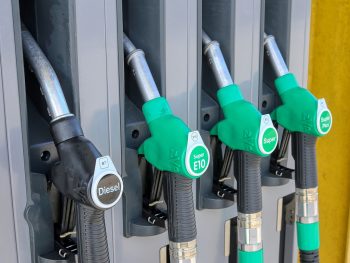Drivers still losing out at pumps as general election ‘takes focus off unfair prices’
UK drivers – bar those in Northern Ireland – are “continuing to get an extremely poor deal every time they fill up”, according to the RAC.

The RAC says drivers are still losing several pounds every time they fill up due to “unreasonably high margins” from fuel retailers
The motoring services organisation has warned that drivers are still losing several pounds every time they fill up, as the general election has taken the focus off “unreasonably high margins” from fuel retailers that are higher than the historical average.
However, the Petrol Retailers Association (PRA) has refuted the comments as it warned of the need for retailers to invest in charging facilities.
RAC data shows a litre of petrol currently averages 146.28p across the UK; 5p more expensive than the 141.1p levied by retailers in Northern Ireland.
The gap for diesel is even higher; the UK average of 151.5p is 10p more than charged in Northern Ireland where a litre averages 141.9p.
RAC data also shows the UK has now had the most expensive diesel in Europe for the last seven weeks. A litre of diesel in the UK is currently 8p more than in Finland – the next most expensive country, and 20p more than the EU average.
The RAC warns that “persistent overcharging at the pumps” means drivers of a typical 55-litre family car are having to fork out an extra £3 for petrol and £5.50 for diesel every time they fill up. A full tank of petrol based on the UK average currently costs £80.50 while the diesel equivalent is £83.30.
Average retailer margins are currently 14p on petrol and 16p on diesel – the long-term margins for both fuels are 8p a litre.
In stark contrast, the average margin in Northern Ireland is 10p for petrol and 9p for diesel.
Looking at the big four supermarkets, which dominate UK fuel sales, margins are 12p and 14p versus the 3p and 8p they took in 2019 before the Covid pandemic.
RAC head of policy Simon Williams said: “Our data clearly shows that pump prices haven’t fallen in line with the reduction in wholesale prices, so drivers across the UK – with the exception of those in Northern Ireland where fairer prices are charged – are once again losing several pounds every time they fill up.
“Having monitored prices for so long we believe there’s no good reason for retailers in Great Britain not cutting their prices at the pumps far further. We can only think they’re hoping no one will notice due to the distraction of the general election.”
It’s now urging the next government to ensure the new Pumpwatch scheme, which became law just before the election, is set up as quickly as possible to “hold retailers, who don’t treat customers fairly, to account”.
The Petrol Retailers Association (PRA) however has refuted the RAC’s comments on unreasonably high fuel margins as it says that petrol stations are having to invest in the transition to electric vehicles.
Gordon Balmer, executive director of the industry body, which represents independent fuel retailers, motorway service operators and supermarkets that account for 65% of all UK forecourts, said current analyses that compare today’s fuel margins to historical figures overlook several critical factors.
“We must consider the significant increases in operating costs, reduced fuel volumes post-pandemic, and the substantial investments required to transition to a low-carbon transportation system. These factors mean that fuel retailers need to earn more from fuel sales to stay in business and invest in the future,” he stated.
Balmer added: “Forecourts are ideally suited for ‘en route’ EV charging, and many PRA members are investing in this infrastructure despite the slower-than-anticipated uptake of electric vehicles and the long payback periods for such investments. If any new government wants to facilitate the transition to a low-carbon transportation system, having forecourts with sufficient EV charging capabilities is crucial.”














